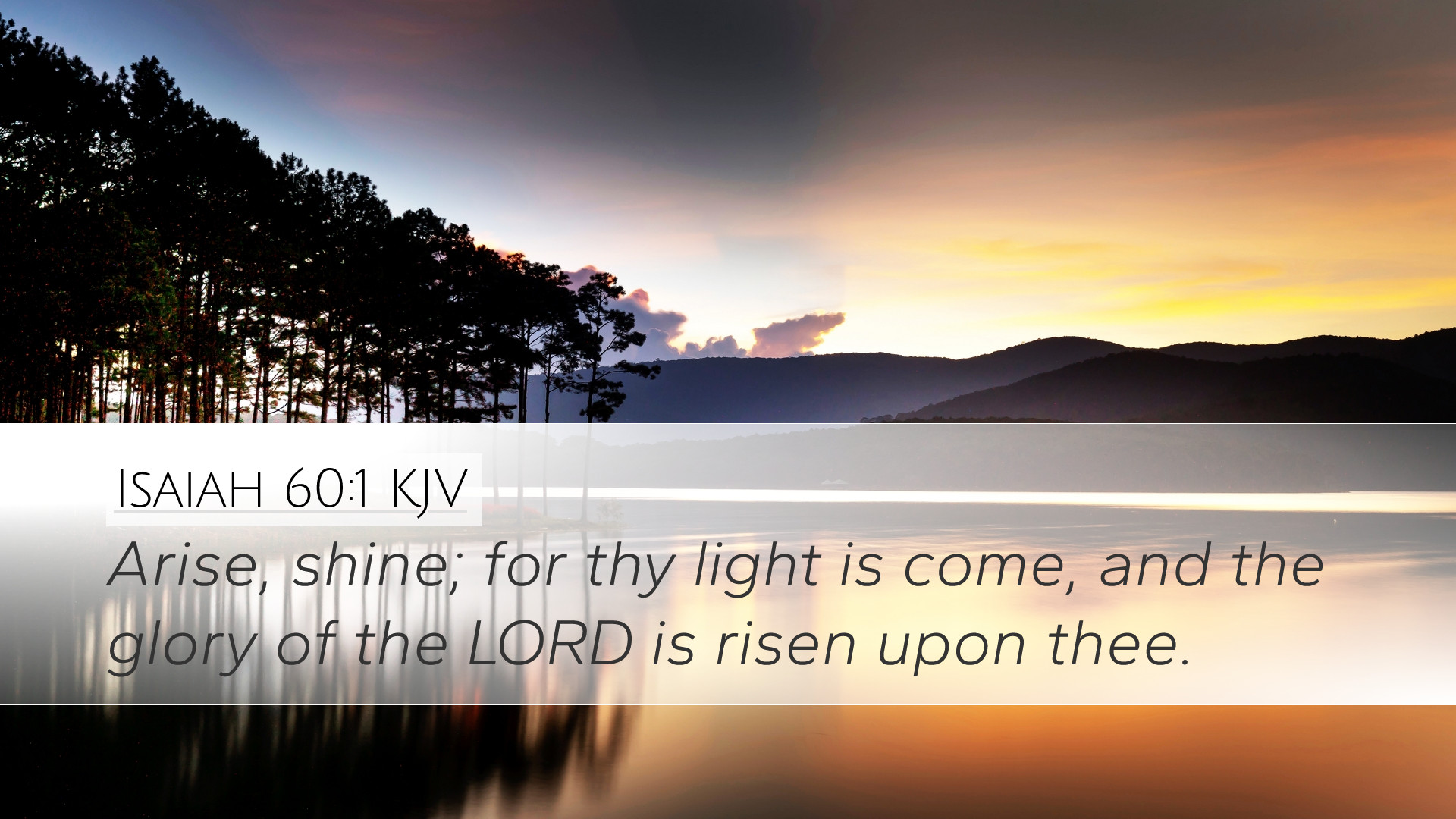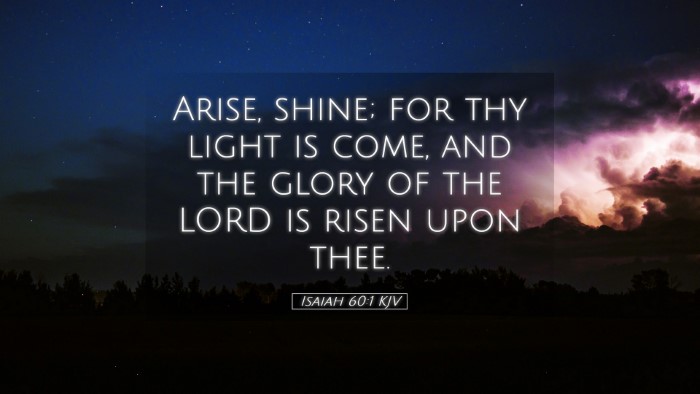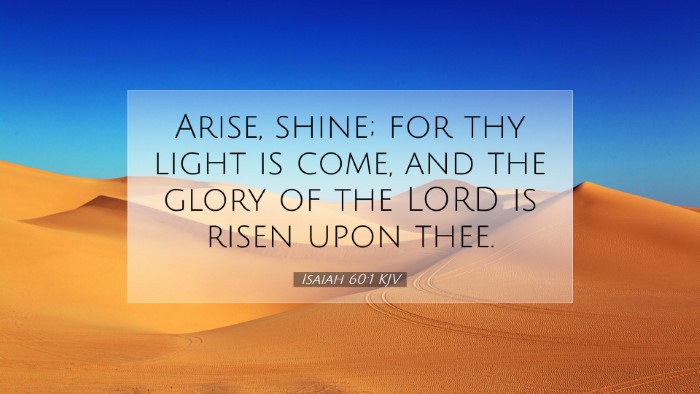Commentary on Isaiah 60:1
Verse: "Arise, shine; for your light has come, and the glory of the LORD is risen upon you."
Introduction
Isaiah 60:1 serves as a powerful proclamation of hope and divine promise to the people of Israel. In this verse, we observe a triumphant call to action and a profound declaration of God's glory, which serves as a beacon for renewal and restoration.
Exegesis of Isaiah 60:1
In order to fully appreciate this verse, it is essential to understand its context within the book of Isaiah, particularly the latter chapters that focus on the restoration of Jerusalem and the future glory of God’s people.
Call to Action
The imperatives “Arise” and “shine” set the tone for this passage. Here, we see a clear directive for the audience to take initiative. The use of “arise” suggests a movement from a state of inactivity, possibly reflecting Israel's previous sufferings and exiles. Matthew Henry noted that it is an encouragement to rise from a low condition, invoking the imagery of dawn breaking after a long night.
The Light and Glory
The declaration that “your light has come” indicates that something transformative has taken place. This is not just a physical light, but an illumination of spiritual significance, representing God's presence and favor among His people. Albert Barnes elaborates on this by explaining that this light symbolizes the gospel era where Christ, who is the Light of the World, brings salvation and enlightenment to humanity.
Divine Endorsement
Moreover, the phrase “and the glory of the LORD is risen upon you” emphasizes that this light is not of human origin but rather a manifestation of divine glory. Adam Clarke highlights that this glory denotes God's visible presence and action in the world, particularly in the life of His people. His glory also serves to separate them from the darkness that surrounds them.
Theological Implications
Isaiah 60:1 carries profound theological meanings that extend beyond its immediate historical context, weaving into the very fabric of Christian eschatology and soteriology.
Restoration and Redemption
This verse encapsulates themes of restoration and redemption. The call to “arise and shine” suggests a journey of transformation, not just for individuals but for the community as a whole. In the context of Israel, it heralds the return from exile and the reestablishment of Jerusalem as a center of worship. For modern readers, it signifies the need for spiritual awakening in any time of darkness.
Christological Fulfillment
Furthermore, the verse is often interpreted through a Christological lens, where the light can be seen as a foreshadowing of Jesus Christ. In the New Testament, Jesus references Himself as the light (John 8:12), fulfilling Isaiah’s prophecy. This connection invites believers to partake in the light and reflect it into the world, thereby continuing the mission outlined in this verse.
The Church’s Mission
In terms of ecclesiology, this verse serves as a clarion call for the Church to fulfill its mission. The Church is charged with the responsibility to be a beacon of hope and light amid societal darkness. The call to shine challenges believers to live out their faith authentically and actively share the gospel, as Matthew Henry emphasizes the initiative required on the part of the faithful.
Conclusion
Isaiah 60:1 is a rich verse filled with encouragement and profound meaning for all believers. It invites a response of action and reflects the transformative power of God’s glory in the life of His people. As we meditate on this verse, may we recognize the light that has come into our lives and embrace our calling to shine brightly in a world in need of hope and salvation. The end of darkness is heralded by the dawn of light; let us arise and reflect that light to all around us.


